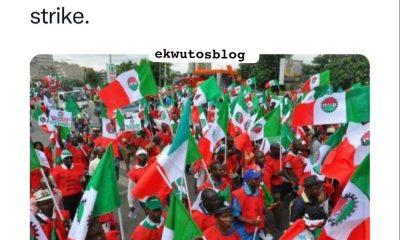Politics
A path to Ukrainian peace: Beyond exaggerated expectations

-

 Politics8 months ago
Politics8 months agoNigerian Senate passes Bill seeking the establishment of the South East Development Commission.
-

 Business8 months ago
Business8 months agoInflation hits record high of 29.90% on naira weakness
-

 Politics5 months ago
Politics5 months agoBREAKING: Federal Gov’t Offers To Pay Above N60,000, Reaches Agreement With Labour
-

 SportsNews7 months ago
SportsNews7 months agoOlympic Qualifiers 2024: CAF Confirms Dates For Super Falcons Vs Banyana Banyana
-

 Politics7 months ago
Politics7 months agoGovernor Hope Uzodinma’s New Cabinet In Imo: The Gainers, The Losers
-

 Entertainment8 months ago
Entertainment8 months agoAmerican Singer Beyonce makes history as first Black woman to top country chart
-

 Politics5 months ago
Politics5 months agoBREAKING: Organized Labour suspends strike for one week.
-

 Business8 months ago
Business8 months agoReasons we cannot sell cement below N7,000, by Dangote, Bua, Lafarge

















